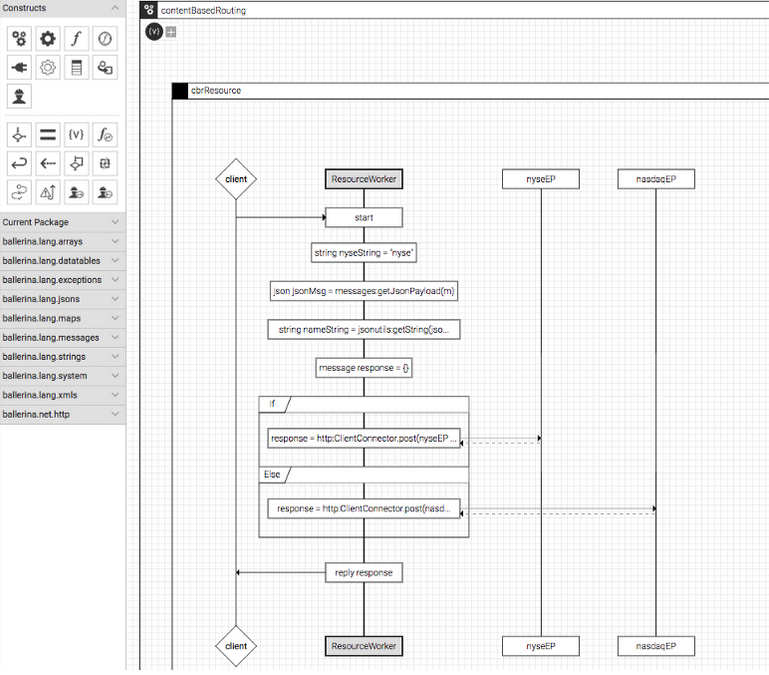| Ballerina Adds New Log API |
| Tuesday, 11 July 2017 | |||
|
There's an updated version of the open source programming language Ballerina with new APIs. Ballerina is a new open source, general purpose, concurrent and strongly typed programming language. It has both textual and graphical syntaxes, optimized for integration. The main reason Ballerina was created was to find a better way to carry out service integration work. Ballerina lets you go further than just drawing and using sequence diagrams to describe scenarios. It was designed to make it easier for programmers and software architects to work together when working on networked services. The language lets you have textual, visual, and swagger representations of your code. It supports XML, JSON, and DataTable as built-in data types for data handling, and makes parallel programming easier by including workers and fork-join. The underlying language is largely a mix of Java and Go, but it has a concurrency model built around a sequence diagram metaphor.
The key to Ballerina is that while programs can run as separate processes with a single entry point, they can also run as services invoked via some network protocol. That is, services are an inherent concept in Ballerina instead of just a style of writing programs. It comes with a standard library of capabilities (network connectors for data/services/APIs, utility functions and annotations) that make it easy to write programs that integrate with a significant number of data sources, services and APIs. It ships with support for standard network protocols including HTTP/1.1, HTTP/2, WebSockets, JMS and FTP(S)/SFTP. Ballerina has a packaging and module system to write, share, and distribute code; there's an editor/composer where you can create your programs using a mix of drawing and coding. You then have a built-in debugger and test framework called testerina. The latest update to Ballerina is version 0.89. It adds two new APIs; a log API for logging messages within Ballerina programs, and a Date/Time API. Other improvements include support for service intercepters, and improvements to the HTTP transport performance and connection handling.
More InformationRelated ArticlesChoosing A Computer Language - I Programmer To be informed about new articles on I Programmer, sign up for our weekly newsletter, subscribe to the RSS feed and follow us on Facebook or Linkedin.
Comments
or email your comment to: comments@i-programmer.info |



